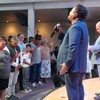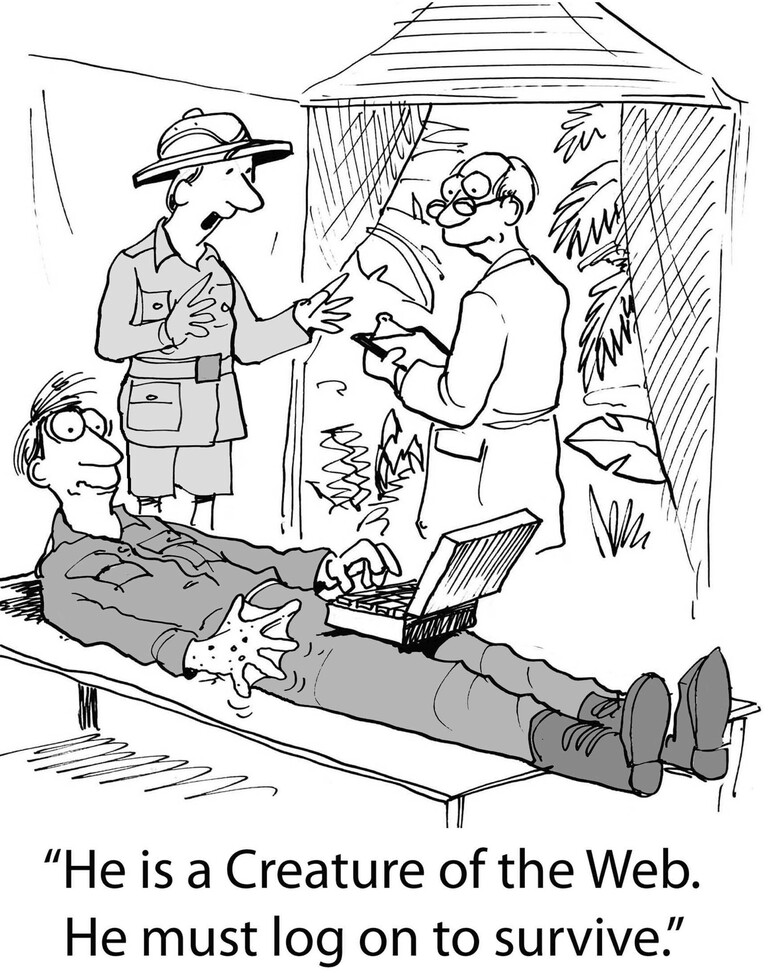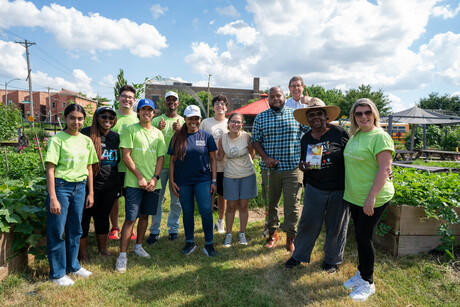People stay “in touch” with machines more than people. Of course someone will protest this point, reminding me that people stay in touch with people by touching their machines; but that only proves my point. Our relationships have becoming increasingly mediated by the “machine that sticks closer than a brother” — matter of fact, thanks to the machine, we keep in contact with our brother, or maybe even discovered we had a brother in the first place.
Some researchers suggest people check their phones between 100–150 times per day (Woollaston, 2013). With so much quality time spent with our devices, how have our relationships and perceptions of the world been altered?
When David Kinnaman’s unChristian was published in 2007, one of the accusations non-Christians (and Christians) leveled at the church was that it was far too “sheltered” (p. 121). Anecdotal evidence points to faith communities squelching questions and hunkering down in hiding from the cultures that surround it. Millennials, as well as others, retreat from these insulated communities in order to enjoy a diversity of opinion and perspective — often online. But what if it’s the Internet that is shaping us to become more “sheltered”?
Technologists note that with so much “ultradiversity” of information on the Internet, we will experience an increased amount of “choice assist technology” (Detweiller, p. 122). As the Internet becomes smarter, assisting us with functions our brains used to perform, the average person spends more and more of their time in a world that perfectly caters to all their preferences. We choose which friends to include in our news feed, we only download the apps of news sources that fit our worldviews, we create playlists featuring only songs we like, and, if someone dares disagree with us or post things we don’t like, then we hide, block, unfollow, unfriend or delete them.
Just like Jesus, right?
During the 2009 Web 2.0 Expo, sociologist Danah Boyd said, “If we’re not careful, we’re going to develop the psychological equivalent of obesity” (Detweiller). Social scientists also point out that, when online, we participate in “ambient intimacy” — where we post frequent updates about ourselves in order to keep people connected to us.
J. Dyer says, “When we do community online we have to think about ourselves much more than when we do community offline” (iGods, p. 169). The longer we stay in touch with our devices the more our devices create a digital world that caters to our views and preferences — where we never have to hear anything other than what we want.
The counsel in Hebrews fits now more than ever: “And let us consider how to stir up one another to love and good works, not neglecting to meet together, as is the habit of some, but encouraging one another, and all the more as you see the Day drawing near” (Heb. 10:24–25). Church is a difficult organization to control — trust me, I’m a pastor. Not everyone likes the same music, preaches on the same themes, has the same ethnicity, uses the same spiritual language, has the same burdens for outreach or even necessarily gets along all the time.
At times it feels like it has the same rhythms of a marriage (the church is often referred to as a bride, after all) with moments of great joy, strife, agreement and argument. More than bringing two people together as one — church seeks to bring a diversity of people together as one, at least that’s what Jesus prayed for (see John 17). It’s a difficult process, but one that makes us better humans.
Renowned communication scholar Marshall McLuhan says, “We shape our tools and thereafter our tools shape us” (Culkin). While I concede the existence of toxic churches (even Jesus does that in Revelation 2–3), overall the process of learning to do community with such different people, in the flesh, shapes me into a much better person than one who does community solely in front of a screen.
Dyer notes that, “when a device hides a process, sometimes we lose out on an important part of human life” (p. 156). Part of human life is the difficulty of relationships — the day-to-day messiness of them. The Internet makes it easy to hide this, while the church, as frustrating as it can be, reminds us of it. I don’t want to lose perspective by participating in a world of my own preferences.











